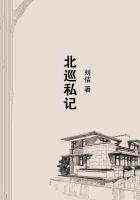The votes would, as at present, be given locally; but any elector would be at liberty to vote for any candidate in whatever part of the country he might offer himself. Those electors, therefore, who did not wish to be represented by any of the local candidates, might aid by their vote in the return of the person they liked best among all those throughout the country who had expressed a willingness to be chosen. This would, so far, give reality to the electoral rights of the otherwise virtually disfranchised minority. But it is important that not those alone who refuse to vote for any of the local candidates, but those also who vote for one of them and are defeated, should be enabled to find elsewhere the representation which they have not succeeded in obtaining in their own district. It is therefore provided that an elector may deliver a voting paper, containing other names in addition to the one which stands foremost in his preference. His vote would only be counted for one candidate; but if the object of his first choice failed to be returned, from not having obtained the quota, his second perhaps might be more fortunate. He may extend his list to a greater number, in the order of his preference, so that if the names which stand near the top of the list either cannot make up the quota, or are able to make it up without his vote, the vote may still be used for some one whom it may assist in returning. To obtain the full number of members required to complete the House, as well as to prevent very popular candidates from engrossing nearly all the suffrages, it is necessary, however many votes a candidate may obtain, that no more of them than the quota should be counted for his return: the remainder of those who voted for him would have their votes counted for the next person on their respective lists who needed them, and could by their aid complete the quota. To determine which of a candidate's votes should be used for his return, and which set free for others, several methods are proposed, into which we shall not here enter. He would of course retain the votes of all those who would not otherwise be represented; and for the remainder, drawing lots, in default of better, would be an unobjectionable expedient. The voting papers would be conveyed to a central office; where the votes would be counted, the number of first, second, third, and other votes given for each candidate ascertained, and the quota would be allotted to every one who could make it up, until the number of the House was complete: first votes being preferred to second, second to third, and so forth. The voting papers, and all the elements of the calculation, would be placed in public repositories, accessible to all whom they concerned; and if any one who had obtained the quota was not duly returned it would be in his power easily to prove it.
These are the main provisions of the scheme. For a more minute knowledge of its very ****** machinery, I must refer to Mr. Hare's Treatise on the Election of Representatives (a small volume Published in 1859),* and to a pamphlet by Mr. Henry Fawcett (now Professor of Political Economy in the University, of Cambridge), published in 1860, and entitled Mr. Hare's Reform Bill simplified and explained. This last is a very clear and concise exposition of the plan, reduced to its ******st elements, by the omission of some of Mr. Hare's original provisions, which, though in themselves beneficial, we're thought to take more from the simplicity of the scheme than they added to its practical usefulness. The more these works are studied the stronger, I venture to predict, will be the impression of the perfect feasibility of the scheme, and its transcendant advantages.
Such and so numerous are these, that, in my conviction, they place Mr. Hare's plan among the very greatest improvements yet made in the theory and practice of government.
* In a second edition, published recently, Mr. Hare has made important improvements in some of the detailed provisions.















